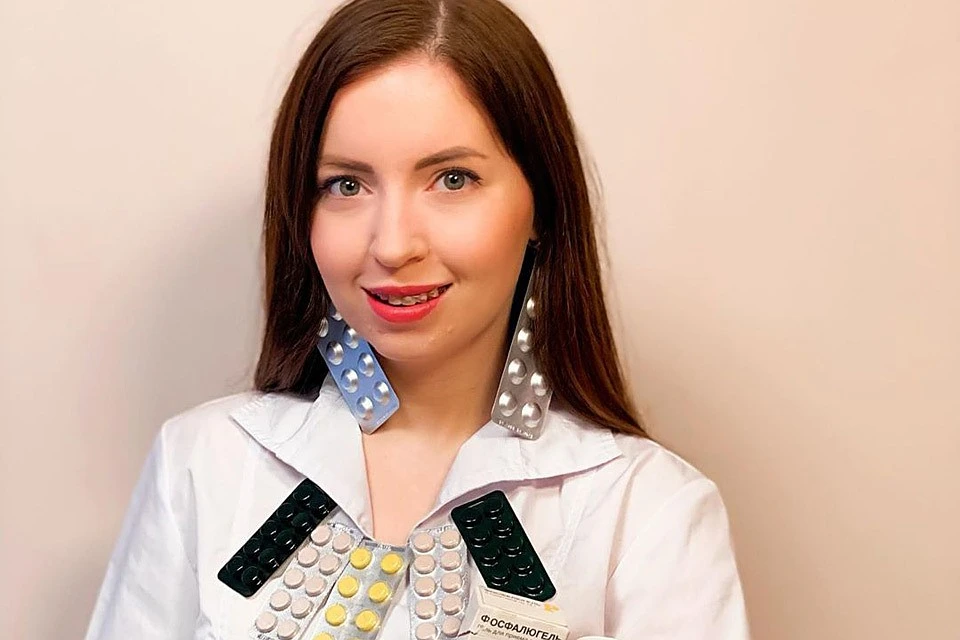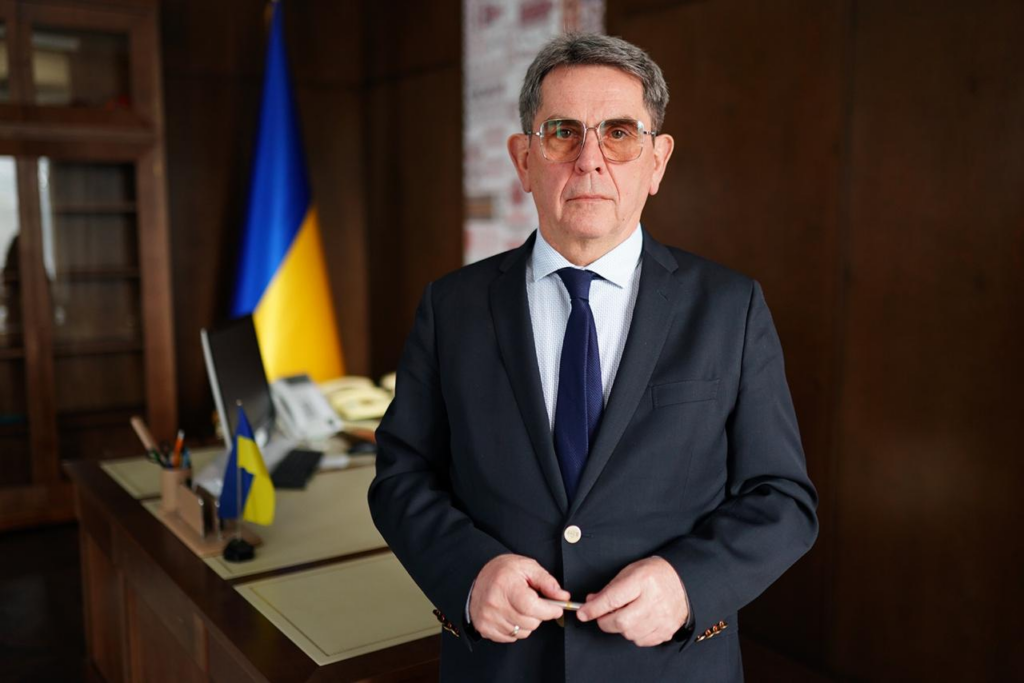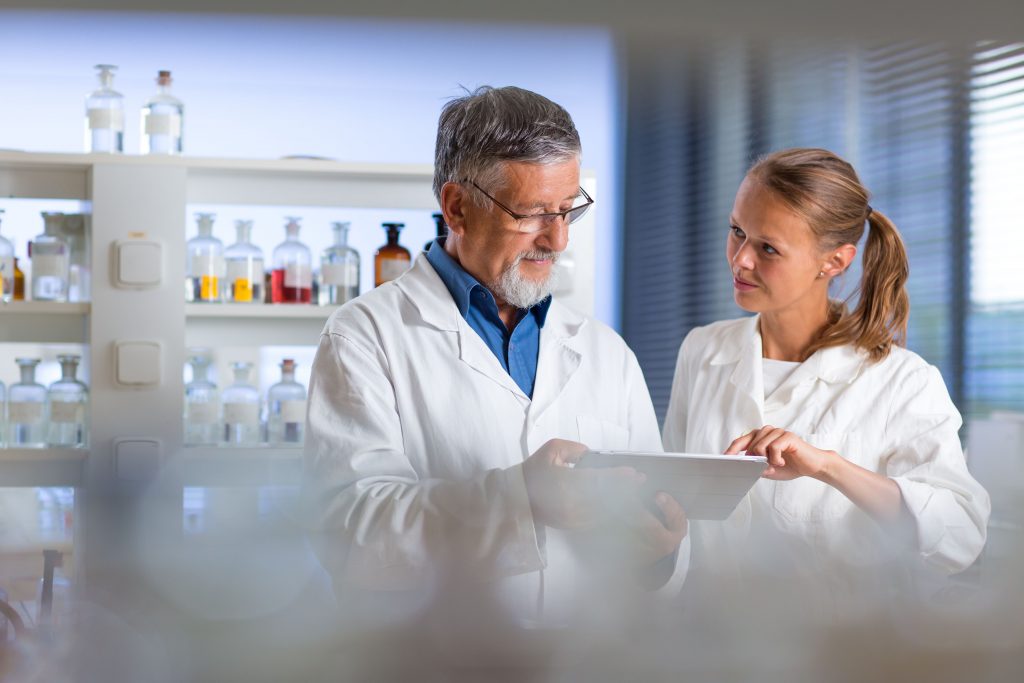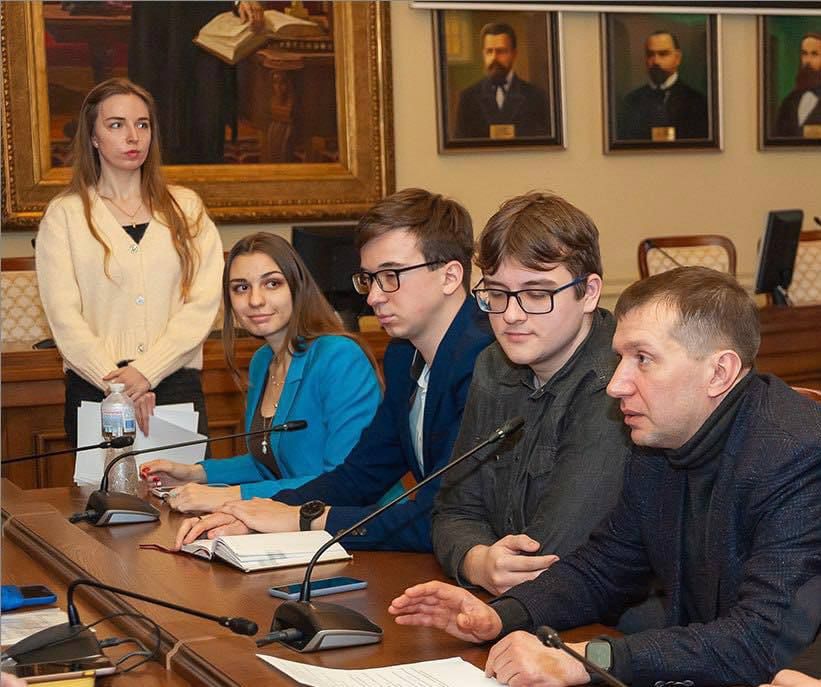
– The 2022 admissions campaign was recognized as one of the most unsuccessful in recent years: not all ZVOs managed to recruit students, even for budgetary places. What are the forecasts for 2023?
– For the National Medical University named after A.A. Bogomolets, the admission campaign last year was not a failure, but, on the contrary, quite productive: we fulfilled the plan of the state order. Yes, we significantly lost foreign students, but we compensated with students of new specialties, for example, “Public Health” and “Management in Healthcare”.
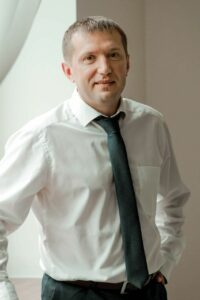
In 2023, the admission campaign will be different for different institutions of higher education. Its success will depend on several factors: the geographical location of the institution, the ability to respond quickly to challenges, in particular, to create conditions of safety in the organization of the educational process and the confidence of applicants. In my opinion, these are the two main components. The first is trust in the AFU and air defense forces of the city where the institution is located. And the second is trust in the institution of higher education itself.
We have faith in WSU and the Air Defense Forces, but we also do our part to do everything we can to protect students.
We have shelters set up for 3,000 people. We have adapted our curricula so that students can learn as safely as possible. We have distance learning, face-to-face learning and many other options, including asynchronous forms of learning, so that students are not exposed to danger.
– Asynchronous forms? What’s that like?
– We introduced asynchronous forms back during covision, we still support it now. This means that students can attend practical classes outside of their timetable. That is, to acquire practical skills when they have the opportunity to do so. I hope that the admission campaign will be successful in 2023. All the more so, the past years have shown that the first place among specialized medical institutions of higher education is always with us. According to last year’s statistics, there were twice as many people wishing to join NMU even compared to the second-place ZVO.
– Who was in second place?
– Lviv National Medical University named after Daniil Halytskyi. Many students consider Lviv safer than Kyiv. But now it’s all relative, because no one is immune from “arrivals”.
If we talk about specific figures, it is difficult to focus on the number of students studying on the budget form, because we have always fulfilled the budget order. But if we talk about the number of applicants who came to the contract form of education, in 2021 we had 130 students, in 2022 – 319. And this is only in the specialty “Medicine” I course.
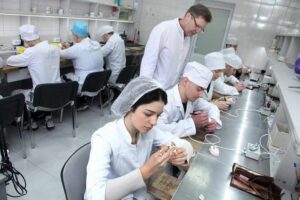
We have a similar picture in the specialty “Pediatrics”. A record number of students went to the specialty “Dentistry”. There were certain losses in the extramural specialty “Pharmacy”. I would also like to say that we have successfully recruited new specialties “Management in Health Care”, “Public Health” and “Physical Therapy, Ergotherapy”.
– Is it all that rosy?
– No, not all of them. Our big problem remains the decrease in the number of foreign students by a hundred times. In 2022, we have only 6 foreign nationals enrolled, while last year, for example, we had 509. This is a big reduction, but I’m sure it’s temporary. It is very pleasing that we have fully preserved the contingent that studied.
Many foreigners returned already during the active bombardment.
Currently, 300 international students are in Ukraine, half of them living in the university’s dormitories and attending classes offline. In addition, over the past month, the university has received about 240 requests for letters of support for transit border crossing for students wishing to return to Ukraine.
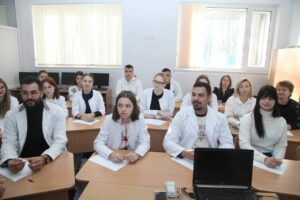
– Which majors at NMU will be the most popular in 2023 based on the fact that we are living in a war and analysts don’t see it ending anytime soon?
– In my opinion, all of our specialties will be attractive to applicants, because war affects all aspects of health. But if we are talking about providing assistance to the wounded, these skills must be possessed by doctors of absolutely all specialties. We saw this when the enemy tried to take Kiev.
By the way, the Bohomolets NMU Dental Medical Center was the first to open in Kyiv after the beginning of the war and for a long time it was the only one at all. We started to receive patients on March 2 and served hundreds of people every day, because it was impossible to endure toothache. We treated everyone who came to us for help absolutely free of charge. We provided dental medical care to townspeople, children, and soldiers.
We are also now treating WSU and TRO fighters for free.
I would like to say separately about the demand for psychologists that we see now. Now many psychologists work in Ukraine – graduates of humanitarian ZVOs, who do not have a medical component in their education, do not know what to do with patients who have added somatic diseases. We have developed a program to make up for this component, and this will accelerate the growth of the number of such industry specialists at the very time when society needs it very much.
– How does NMU live in general now? How many faculties, departments do you have? How many students do you have?
– Despite the war, NMU continues to develop. Now we have 9 faculties where specialists of 8 specialties are trained (“Medicine”, “Pediatrics”, “Medical Psychology”, “Public Health”, “Health Management”, “Stomatology”, “Pharmacy. Industrial Pharmacy”, “Physical therapy, occupational therapy”) and 84 departments. We also have our own University Clinic and consultative-diagnostic polyclinic, Dental Medical Center. They, by the way, perform the function of the main clinical bases of the University, so that the students’ training is maximally carried out at the patient’s bedside. There is a separate professional medical college. There is an Institute of Hygiene and Ecology, which is apparently equal to several research institutes in terms of capacity to provide services.
I can’t help but talk about our library. The University has access to dozens of international libraries and scientific depositories. Teachers and students can use their resources free of charge, conduct necessary scientific activities. All scientific research is supported by research institutes of experimental and clinical medicine.
The Institute of Postgraduate Education has been successfully functioning for eight years. It annually increases the number of students and the number of departments. In addition, today the A.A. Bogomolets NMU is the only ZVO that has an updated license for postgraduate education.
– If I’m not mistaken, such licenses used to be a non-issue. Correct me?
– Licensing of postgraduate education has not been so structured so far. Because of this, it was easy to get a license, so it was awarded to providers who had no good reason to do so. Quite frankly, many of them had no basis for it at all. Now the requirements for postgraduate education have become standardized. As far as I know, we are the first and only ones who received a new license. Consequently, we have doubled the license enrollment.
– I also wanted to ask about the University Dental Center that we talked about earlier. Who can come to you for treatment?
– Anyone who needs treatment. We provide services to certain categories of patients free of charge at the expense of state funding. For example, at the beginning of March 2022, we provided absolutely all assistance and all segments of the population free of charge. Now we provide assistance free of charge to AFU and TRO fighters, as well as to vulnerable categories of society.
Regarding high-tech and expensive services – we have tariffs approved by the Ministry of Health of Ukraine, according to which the services are ordered and paid for absolutely transparently through the registry, and the funds get into the budget.
– Another very important question. Does NMU have agreements with medical institutions on employment of graduates after graduation?
Employment can be conditionally divided into two parts: employment of a student who studied for budgetary funds and employment of a student who studied for extra-budgetary funds.
“Budgetary employees” get a place of work according to the distribution. There are orders from health departments of different regions of Ukraine, the city of Kyiv, and someday, hopefully, the city of Sevastopol. Accordingly, based on their rating, a student can choose a place of future work.
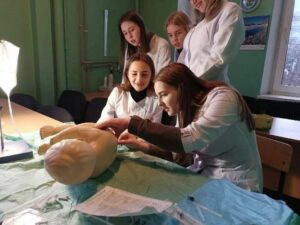
If we talk about the contractual form of training, we have agreements with private medical institutions, as well as with clinics belonging to the National Academy of Medical Sciences of Ukraine. They place a competitive bid and can choose future employees for themselves.
We had an experience of working with a private clinic “Oberig”, which not only paid for students’ internship training, but also paid a decent salary. This is a very good chance for a graduate to gain financial independence immediately after graduation.
– It is very important that a person understands the chances of finding their place in the sun after graduating from the WHS.
– We actively cooperate with many powerful medical institutions, both public and private. And our students have every chance of getting a good job. But I want to point out that this applies to students who learn well, not those who think they are obliged to be employed. In my experience, motivated students never have a problem getting a job. There is now a big demand for motivated graduates in all areas of health care, from hospitals to our university. By the way, in the EU countries too.
– Should the diploma of the A.A. Bogomolets NMU be confirmed in the EU countries?
– This is also an interesting question. It is often speculated on by the dishonest ZVOs during enrollment campaigns.
Medicine is a state-controlled industry in all countries, and there is a clear distinction to be made between credentialing and access to the profession.
There are no problems with the recognition of our diploma – it is a standard procedure, and most countries recognize the diploma of an NMU graduate. But when it comes to access to a profession, there are additional conditions. Often it is passing a number of specific exams, starting from language knowledge and ending with the specifics of the profession. For the USA or Canada it is a special procedure in general. For many European countries it is also a common practice and specific for each country.
– A question that I cannot but ask you as a rector. For quite a long time NMU had an unspoken reputation of one of the most corrupt universities in Ukraine. How is it now?
– We are working on this constantly and systematically to launder this “reputation”. We have created new mechanisms to prevent corruption. Firstly, we conduct statistical observations, monitor student performance graphs and pay attention to discrepancies, if any.
Secondly, mechanisms have been created to protect against corruption. Now every student has the right to an independent assessment when retaking the exam. Naturally, there are reporting boxes and a helpline. NMU has a commissioner who works daily, full-time, communicating with students and teachers, and this also brings results.
We also abolished “time worked.” The Academic Council of NMU has determined the number of hours that must be worked. In most cases, this is 75% of classes, and if a student misses 1-2 classes, he or she may not work them at all. The other thing is if a student did not attend the required number of hours, they must take the course again. Regardless of whether the problem was involuntary and the reason was valid.
If a student has not taken a course in emergency medicine, for example, his patient does not care if he was sick and has a certificate, or went to the village for a wedding.
In that case, I believe it is not a punishment, but an opportunity to gain important knowledge for the future profession.
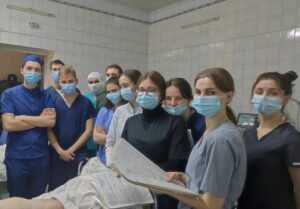
The second mechanism concerns retakes. A student has several attempts to pass a credit or exam, and when it comes to the last attempt, he/she can retake it either to the faculty of the department or to an independent commission. The commission is chaired by one of the vice-rectors, and includes independent experts in the same specialty who have no relation to the department, no conflict of interest. It is important for students to feel protected.
I would also like to mention the cooperation with student self-government bodies. Representatives of the student council and student trade union committee are part of the daily rectorate. We have the opportunity to monitor, and they have the opportunity to address and be heard. We also cooperate with the scientific student society. Conditions of free access to the management and administration of the university have been created for our students.
– What plans do you have as rector for the coming years?
– We are at the final stage of structuring clinical education and clearly define what portion of the hours the student must learn in the classroom, what in the simulation center, and what in the real patient.
We want to make the time when a student went into the hospital to learn just like they learned in the classroom a thing of the past.
In the clinic, the student must perform authentic clinical work under the supervision of experienced professionals. All these plans are already being realized. In addition, we are building our University Clinic, because without practical competencies it is impossible to become a doctor.
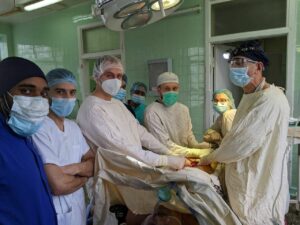
– Ukraine has gone through a lot this year. And what have you personally gone through this year?
– I realized why I live here. I clearly realized why we teach students of medicine in Ukraine and how important it is that we do this. During this year we have learned to appreciate each other, to value what we have, our family, friends, and country. We learned not to be afraid of the enemy or uncertainty. We realized that our university is strong and indestructible, just like Ukraine and the entire Ukrainian people.
Photo: Bogomolets NMU Press Center

